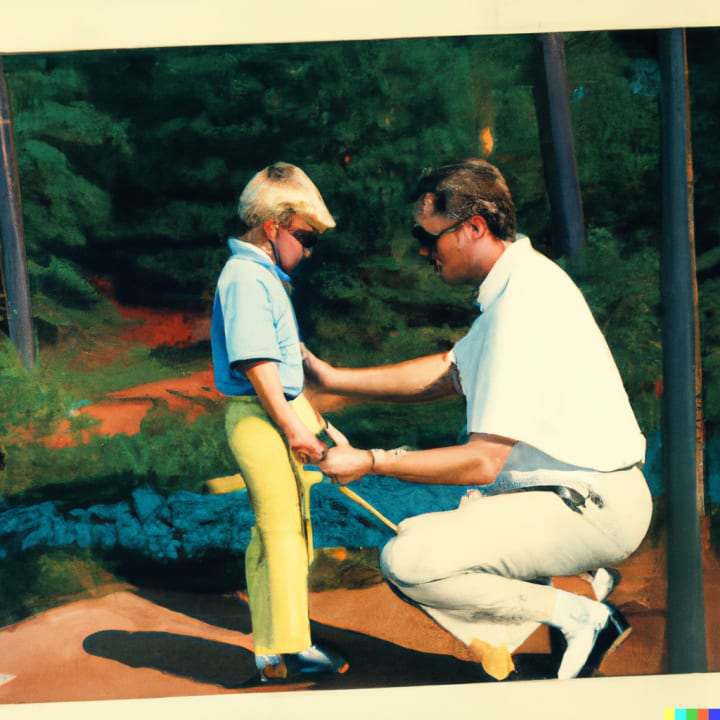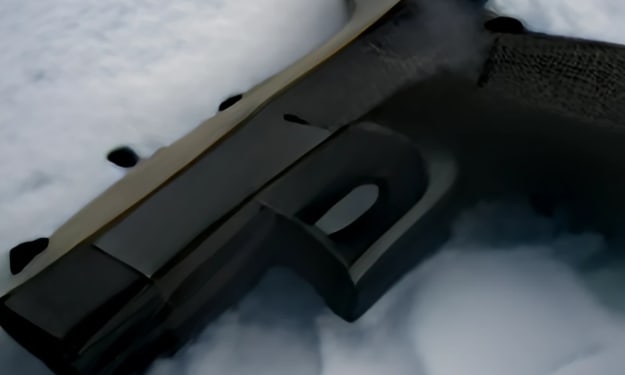Outside Jim Thorpe
I shouldn’t be driving.

It’s been six hours since I got the call, yet it feels like six minutes. Six minutes filled with packing, phone calls, texts, uneaten food, questions, blank stares, chairs, waiting, car rentals, driving, and memories.
Memories are full of details that focus you on what their eyes looked like rather than what they looked at, or the way they talked rather than the meaning behind their words. You care more for the players than the play and remember them for how they entered or exited the stage rather than how they actually performed their roles.
The white noise of the road hisses under my tires, skipping at concrete intervals or popping on the sun-soaked black-top, keeping my ears filled with personal sounds of reality. Grounding me with the bass of engine hum, the static of a remnant radio signal, and the whistle from a rear window, not quite closed.
I try to remember my father and all I can think about is the grey in his hair. Even as a boy I remember my father had grey temples… and the way the stems of his heavy glasses tucked his hair back behind his ears, but if I try to remember my father as a whole? As the man who raised me, as the man who I debated with, then argued with, then gave up on? All that surfaces are choice words. Words I used, and he didn’t. Words I should have used, and he did, and then how we exited from each other’s life.
I try to move beyond those wounds but emotions derail my thoughts and instead black incites and twisted judgments get pulled malformed from the incandescent kiln of my past resentments into the light of this day. Sharp rotting smells, flashes of blinding rage, the sandpaper of my skin, and the bitter copper of adrenalin on my tongue, are all physical manifestations that fill the car’s confining cabin with the malignancy of life as I see it. A world of words, images, and colors burning the chalk of black coal into fiery reds and yellows until their grey faded embers crumble into the dust of exhaustion that fades in the emptiness of the car and that hissing of tires.
That’s not how I want to remember him. That’s not who he will be for me. I try to look past the wounds once more to remember the love he had for me but that emotion feels faint compared to the personal space of pain that I’ve built and fortified over the years. Faint and faded like a photograph bleached in the sun; now neglected, having fallen during a rush to get out of a home on a morning some nine years previous, never bothering to return to save it from weathering until only a damp white square remains to rot among the rushes.
I try once again to remember his face, focusing on the details in order to distance my attention from the whole of my own prejudice. The grey temples, the heavy glasses, the way they enlarged his eyes, magnifying them as they looked down on me from a distance.
Then another thought surfaces. The next time I’ll see that face it will be a dead face. I try to envision him alive, but instead, I vividly imagine flowers, coffins, pillows, a nice suit, and his grey hair, combed, thinning, a fresh cut above shoulders that are spotless of dandruff. And his eyes, lacking the protection of those heavy glasse appeared small and diminished, sunken, exposed, unrecognizable, and closed.
My eyes follow the road too closely. I can’t tear them from the center lines, dashed, dotted, telegraph hypnosis. If I lifted them from the pattern, I don’t know where they would land, and I just want this trip to be over, to be home. I grip the wheel and drive.
“Here, let me show you.”
His hands are huge, enormous, like tarantulas gripping bananas, covered in coarse hair and rough calluses. Skin stained with sun and scoured with earth. Nails cracked like flint, bitten short to stubs. These hard hands engulf my small pink clumsy things into an awkward grip of a golf putter. Alien. I’ve never held anything like this. I don’t like it, my hands fidget.
“Thumbs do…thumbs… here, thumbs down, like… Fonzie, right, only upside down? Look. Ayyyyy! Say it. Ayyyyy!”
I’m cool, “Ayyyyy!”
“Right, now point them down, like, here…” Again his hands fold over mine, holding the club in wrist-bending weirdness. I try to look over them. Through his arms that drape around my shoulders and press my ears flat. “See? Left first, thumb pointed down. Right? No. On top. Stop fighting.”
It feels weird.
“You want to do it right, or do you want to go home?”
“Hey, buddy. Let us play through it, will ya? Go on the practice green, for Pete’s sake!”
I try to look to see who's talking and catch a glimpse of a line forming behind us just before Dad’s forearms squeeze me back in place.
“Don’t pay them mind. Now, just keep your thumbs down, right? Grip it easy, easy, like, like Buster’s paw. Don’t hurt Buster, but don’t let him go. Got it?”
His hands release me and his weight moves away following his shadow as he steps off the green.
I lift my eyes. The Wildwood Pier Put-Put Arcade is crowded. Seagulls swing, shipwrecks sway, clams snap, octopi do what octopi do, and a whale swallows a ball next to my green causing a kid to cry in frustration. All around a summer crowd pushing for fun. I look behind me at the audience in line, coiled in wait, kids and parents waiting, waiting, waiting for me to swing, and fail. I suck.
“Come on! Let us play through, huh?”
“Sean, keep your eyes on the hole, not on them.” He stands in front of the lighthouse and holds his own putter out, pointing it toward the left of three mouse holes. “Just aim it here. Aim it like I showed you. Grip it as I showed you. Hit it gently, like I showed you. Ready?”
I nod. I close my eyes.
“Open your eyes or you won’t hit anything.”
I open my eyes. I breathe, I aim, I grip, I swing, gentle like he showed me.
My father watches as my ball rolls toward the hole. He is leaning on his putter, watching with pride in his eyes. Eyes are framed by those heavy glasses that tuck the grey behind his ears.

I don’t remember pulling over, but I did. I’m halfway home, somewhere in the Pennsylvania moraine. Just outside Jim Thorpe. I shouldn’t be driving, not now.
About the Creator
Brendan McGlynn
3-2-1, liftoff! Major Rick felt the g-force as his rocket lost control. Ricky tossed his plastic toy in the air and caught it just in time.






Comments (1)
Had Chatgpt review the story. In the first paragraph, the narrator sets the scene and establishes his state of mind. He is driving, but he shouldn't be, and he is still reeling from a phone call he received six hours ago. The description of the events that have transpired in those six hours is fragmented and disjointed, emphasizing the narrator's disorientation and sense of overwhelm. The paragraph ends with a reflection on memory and how it can focus on details that are not necessarily important. In the second paragraph, the narrator describes the sounds of the road and the way they ground him in the present moment. This sensory detail creates a vivid and immersive sense of the environment, highlighting the contrast between the chaos of the previous paragraph and the relative calm of the present moment. The third paragraph is where the emotional core of the story begins to emerge. The narrator tries to remember his father but finds that he can only focus on his physical appearance rather than his personality or character. He is also haunted by the memory of their unresolved conflicts and the painful words that were exchanged. The use of metaphors such as "incandescent kiln" and "fiery reds and yellows" creates a vivid sense of the intensity of the narrator's emotions. In the fourth paragraph, the narrator tries to move beyond his negative feelings and remember the love his father had for him. However, this emotion feels faint and distant compared to the pain that he has built up over the years. The metaphor of a photograph that has been neglected and weathered creates a sense of loss and decay. The fifth paragraph continues the theme of trying to remember the narrator's father. The focus shifts to his physical appearance, specifically his grey hair and heavy glasses. However, the paragraph ends with a disturbing image of his dead face, which creates a sense of dread and foreboding. In the sixth paragraph, the narrator's attention returns to the road, and he struggles to tear his eyes away from the hypnotic pattern of the center lines. This creates a sense of tension and unease, as the reader senses that something bad may happen if the narrator loses focus. The final paragraph is a flashback to a memory of the narrator and his father playing miniature golf. The description of his father's hands creates a sense of intimacy and familiarity, but the presence of other people and their impatience creates a contrast between the private world of the narrator and his father and the public world of social norms and expectations. Overall, "Outside Jim Thorpe" is a powerful and poignant exploration of grief, loss, and memory. The fragmented structure and sensory details create a vivid and immersive experience, while the metaphors and imagery evoke the intense emotions that the narrator is experiencing. The use of flashbacks and memories creates a sense of the narrator's personal history and relationships, while the contrast between the private and public worlds creates a sense of conflict and tension.